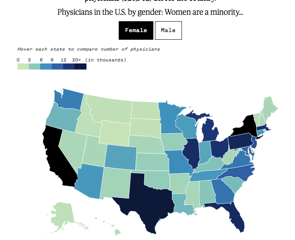Medicine needs a #MeToo moment
In researching the subplots in my newest medical mystery/thriller Silent Survivor, I spent hours reading stories of veterans who had experienced military sexual trauma and college students who had been sexually assaulted.
Of course I was aware that many women in various professions – acting, corporate, government, for example- have experienced sexual harassment and even assault.
But frankly, as a physician myself, I was surprised to find that medicine has yet to have its #MeToo moment.
According to NBC News, a 1995 study found that more than half of all women in academic medicine said they had been sexually harassed.
Two decades later, Dr. Reshma Jagsi, professor of the University of Michigan and director of the school’s Center for Bioethics and Social Sciences in Medicine, did her own survey of top physician/scientists. Hoping for progress, she was disappointed to find that 30% of female doctors still report being the victims of sexual harassment. Only 4% of men reported the same.
DeFilippis in a JAMA oped, stated that “to be a women in medicine, whether in training or in a senior role, includes the unique challenge of facing sexist behavior from patients and even colleagues on a regular basis in an already stressful work environment.”
In a 2018 Medscape survey of 3700 physicians, more than one in four (27%) said they had experienced at least one incident of being sexually harassed within the last three years. Yet only 40% reported any of these incidents. Less than 25% of their reports resulted in any investigation.
“The Medscape report underscores the need to take on the issue of harassment within the medical community and ensure that those who are victimized will be heard,” said Hansa Bhargava, M.D., a pediatrician and Medscape medical editor.
Last year (2017) was the first time that the majority of medical students across the country were female. Still, in terms of practicing doctors, women are still a minority (326,902 female doctors compared with 623,054 male doctors)
Up to now there has been a culture of silence in medicine. Women interviewed said fear of speaking up could cost coveted recommendation letters and negatively influence career progress. Sadly, medical students who experience sexual harassment have the highest rates of suicide.
One resident stated that “keeping quiet about this helps no one.” This is precisely the message I’d hoped to promote in my novel Silent Survivor and one I hope will resonate in my own medical profession.
